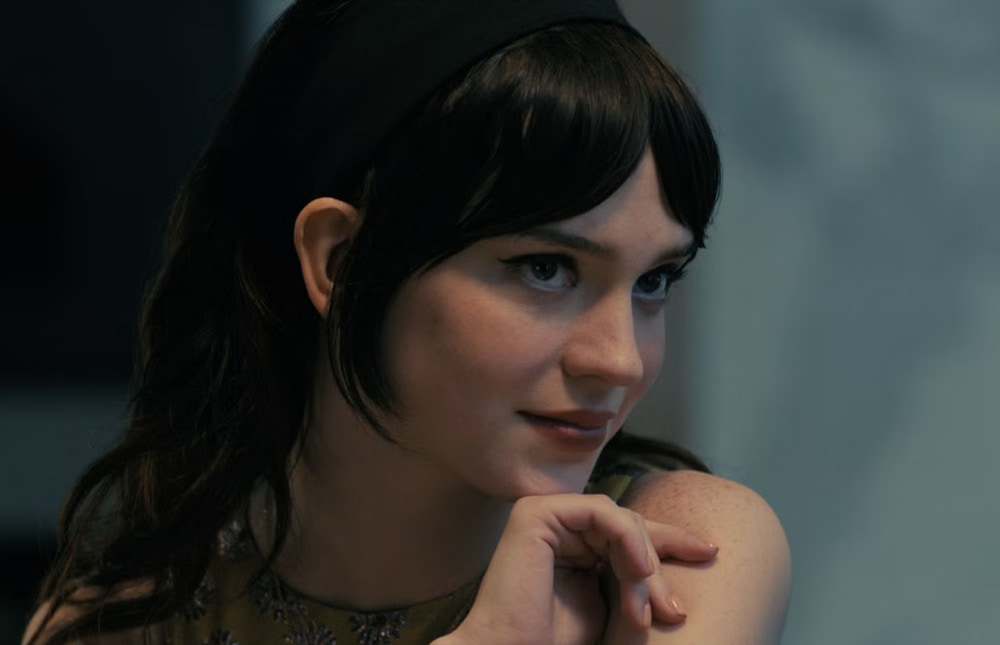Companion

Sophie Thatcher stars in COMPANION. (Photo: Warner Bros.)
Shortly after we meet Iris, the title character in Companion, we share her anxiety when she agrees to tag along on a boozy weekend getaway to a remote lake house. Surely she’s seen this scenario play out in the movies, and knows how it almost always ends, right?
Then it becomes apparent that we, like Iris, have been misled by this deviously clever thriller that isn’t actually a millennial horror flick but rather a science-fiction cautionary tale. And Iris isn’t the insecure, eager-to-please sidekick she tries to convey.
Of course, from the get-go, something seems off about her, and not just because she already foreshadowed during the opening meet-cute that she’s going to kill her boyfriend.
This offbeat and amusing variation on a familiar concept peppers clever twists throughout the nonlinear screenplay by rookie director Drew Hancock, which subverts genre expectations in a mischievous A.I. saga for the age of smart homes and self-driving cars.
Discomfort simmers beneath the surface at the six-person gathering at a rural mansion owned by a wealthy Russian named Sergey (Rupert Friend), which turns into a stew of paranoia, jealousy, distrust, and sexual tension.
Iris (Sophie Thatcher) is the last to arrive along with her boyfriend, Josh (Jack Quaid). They join Josh’s friend (Megan Suri) and a gay couple (Lukas Gage and Harvey Guillen) whose acquaintances are mutual.
Things begin to spiral after Iris fatally stabs the sleazy Sergey during a confrontation at the beach. That kills off the alpha-male vibe in a hurry.
Gradually revealing background details about the guests, along with their loyalties and motives, it turns into a bloody power struggle in which nobody is what they seem — and not everyone is programmed to survive.
The film stretches logical credibility as it blurs the line between heroes and villains, suggesting that perhaps some of these humans are getting what they deserve.
It hints at a cursory examination of contemporary relationship dynamics and gender politics, but Hancock seems more concerned with bloody chauvinistic comeuppance than deeper moral complexity. The puzzle isn’t complex, which is fair enough.
The result is not especially cerebral or provocative while emphasizing laughs over frights. However, the efficiently structured Companion fearlessly unleashes a playfully macabre bag of tricks.
Rated R, 97 minutes.